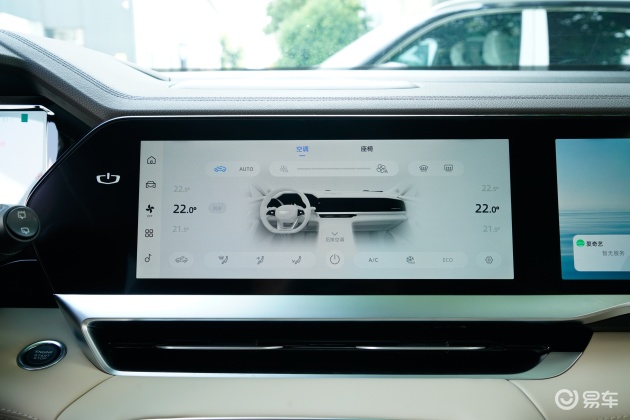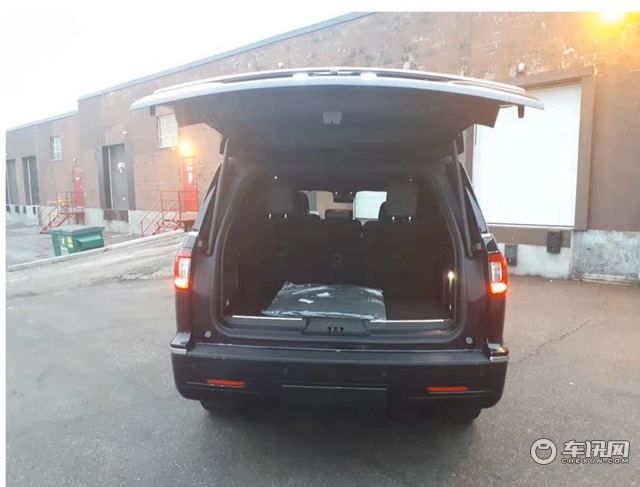In 1953, the Senior Nursing School of Peking Union Medical College was officially dissolved after 33 years of spring and autumn.
Prior to this, the senior nursing school and the medical college went through several times of disintegration and baptism by gunfire, as well as harsh "elite education", English teaching, elimination mechanism, internship, studying in the United States … The highlight and darkness coexist, and the inside story of education remains unchanged.
After that, nursing education entered the period of "technical secondary school mode", in which "Secondary Five" was common (that is, graduating from junior high school and going to technical secondary health school) and "Senior Six" was rare (high school+junior college was six years). Nie Yuchan, the former president of the Nursing School of Peking Union Medical College, once said: "After four months of hard migration and running schools in the rear during the war, the nursing school of Peking Union Medical College was not retained.". It was not until the 1980s that it gradually regained its glory. In 1983, Tianjin Medical College first set up five-year undergraduate nursing education, which brought it back to light.
The work of nurses is often replaced by "injection" and "medicine distribution", and the academic background of nurses is often synonymous with "poor students". Stable work, integrated with medicine, is often excluded from medicine.
Prescription right is not a precedent, and it has existed abroad for a long time. However, in China, the soil of nursing vocational education is not perfect, and the implementation of nurse prescription right is also stumbling.
By the end of 2021, the number of registered nurses in National Health Commission has reached 5.018 million, and nearly 80% of them have graduated from colleges and universities. However, according to Liu Hua, director of the nursing department of a hospital in Shenzhen, "education is the cornerstone of practice, and at this stage, most of our vocational education (that is, the mechanism of sending students from Secondary Five/third-party labor) may still be difficult to match the difficulty and intensity of hospital work."
The liberalization of the rights and interests of nurses’ prescription right in Shenzhen Special Economic Zone is only the beginning, and a series of supporting facilities such as the entry threshold for specialized nurses have not been supplemented, and the reshaping of vocational education in related disciplines is the fundamental.
This article comes from WeChat WeChat official account:Caijiandao (id: artofwealthandhealth)Author: Zhang Yuqi, Yan Yang, editor: Yang Zhongxu, drawing: Zhang Yuqi, original title: "Shenzhen nurses can prescribe! Patient trust, talent gap, industrial outbreak, still waiting for time ",the first picture comes from: vision china.
On June 23rd, news came out from Shenzhen Special Economic Zone that nurses would have the right to prescribe with certain authority. At that time, applause and controversy arose at the same time, and there was a discussion around the scope, power and responsibility of nurses’ right to prescribe.
In the revised Medical Regulations of Shenzhen Special Economic Zone(hereinafter referred to as "medical regulations")Article 64 clearly states,Nurses with specialist nurse certificates can issue examination application forms, treatment application forms, topical drugs and other practice activities in nursing specialist clinics or community health service institutions.
This local medical regulation, known as the "advanced upgraded version" of the SAR medical regulations, will be implemented on January 1, 2023.
According to the practitioners involved in the revision of medical regulations, before the final version was published, they participated in the revision of 13 different versions. The specific rules behind the "nurse’s prescription right" in the medical regulations and the division of rights and interests are still under planning.
The "dispute over prescription right" is not about who signs and who is responsible, but about the same frequency resonance of the practice level, vocational education and supporting measures behind the prescription right.
Zhangyan, head nurse of comprehensive rehabilitation department of a hospital in Shenzhen, mentioned many times in her communication with her peers.Nurses’ prescription right not only benefits nurses themselves, but also benefits patients..
Patients don’t want to go back and forth and register repeatedly, but they are subject to the authority. Nurses often have the skills and can change clothes, but they don’t have the authority, which is a double loss of money and time for patients.
Of course, "if there is only a single prescription right, it can’t go too far," Liu Hua said.
According to Huang Wei, director of the medical department of a hospital in Shenzhen, although it is a good thing for nurses to let go of prescription rights, in the medical regulations, prescriptions prescribed by doctors can be reimbursed by medical insurance, and it is still inconclusive whether the prescriptions prescribed by nurses can be connected with medical insurance in the future.
How far the nurse’s prescription power goes is unknown, but medical treatment itself is a long process of trust. Doctors are trusting nurses, and patients are choosing medical care.
First, the limited right of nurses to prescribe
Nurses’ prescription right has long existed.
In 2017, Anhui Province took the lead in trying to give nurses the right to prescribe. Compared with the regulations of Shenzhen, the scope of prescription right of nurses in Anhui Province was narrower and the assessment was more stringent, which was expressed by a formula: "Strict assessment mechanism+specialist nursing clinic = limited prescription right under the guidance of doctors".
Senior nurses have more rights and interests, the academic community is exploring, and the industry is crossing the river by feeling the stones.
This year(2017)Peking University College of Nursing recruits the first batch of senior practicing nurses in chronic disease management in China.(2, equivalent to practicing nurses in the United States)After completing the professional master’s course and clinical practice training, it is expected to become a pioneer with limited prescription rights and participation in chronic disease management.
Nurse practitioner(NP,nurse practitione)Clinically, it is often called "nurse doctor", which refers to a registered nurse who is specially trained to provide many primary health care usually carried out by doctors. Their nurses with specialized skills and knowledge can diagnose and treat patients and have the right to prescribe.
According to statistics, from 2012 to 2017, Guangdong Nursing Association trained ICU in five years.(intensive care unit)There are 2836 specialist nurses in 14 specialties, including specialist nurses and static therapy specialist nurses. On this premise, in 2018, hospitals in Guangdong Province successively opened nursing clinics, PICC clinics, midwifery clinics and wound ostomy clinics.
When the outpatient service is opened, the rights and interests are released, pointing to who owns the prescription right within the outpatient service.
According to zhangyan’s recollection, the prescription right of nurses was very limited at that time, and only a few head nurses had the authority to apply for treatment.
For example, when a patient with stress injury goes to the hospital for face-to-face consultation, the nurse first evaluates the wound condition in the dressing changing room of the outpatient clinic, then registers with the doctor, and then the doctor makes a prescription for dressing change, and then the outpatient nurse changes the dressing. The whole process is summed up in the queue at the payment office, the consultation room or the dressing changing room, and the time cost and registration cost are drowned in the hospital. In fact, if the nurse has certain prescription rights, most of the dressing changing problems can be solved.
Having the right to prescribe is not only for improving personal rights and interests, but also for patients.
Many head nurses said that although patients have much higher trust in doctors than nurses, with the improvement of nurses’ professional skills, patients’ trust is also improving. Huang Wei said that the division of labor between doctors and nurses in hospitals is different. Some treatments, such as PICC catheterization and nursing, are more professional for nurses; Some such as deep vein catheterization.(Infusion port implantation)Our doctors are more familiar with the operation, but they need nurses to change the dressing.
Opening up the rights and interests of nurses is convenient for nursing and the promotion of autonomy. For doctors, it diverts doctors’ prescription rights, and the work pressure itself is great. Why not release some rights that should be diverted? Huang Weiru said.
As early as October, 2021, when west china hospital started the Senior Practical Nurse Program, the relevant nursing professionals felt that if vocational education and medical treatment were derailed, nurses’ autonomy and nursing professional level could not be improved.
The expansion of prescription right continues.
Although Anhui Province, as the leader of the "pilot project", "sank" the first batch of 78 senior nurses to the grassroots level to carry out specialist nursing clinics to supplement the position of general practitioners, Anhui’s prescription rights have not really landed, and the rights and interests of nurses under the guidance of doctors are still limited.
Controversy among all parties is difficult to implement, which is the first step to limit the promotion of nurses’ prescription rights.
Liu Hua mentioned that in the dispute of prescription right, the most intuitive feeling is who owns the graded nursing prescription for clinical patients. Nursing majors learn how to distinguish between primary care and secondary care in medical college. Although it is necessary to distinguish the nursing levels of patients in clinical practice, in practice, the prescription right of graded care is not owned by nurses, and the graded care prescribed by doctors is sometimes not necessarily right, but it is actually difficult to shake the power to follow and follow the doctor’s advice.
In addition, how to make patients trust is also a long process in the promotion process.
According to Wang Li, the head nurse of the emergency department of a hospital in Shenzhen, some of her peers are specialized nurses in wound repair in Guangdong Province.(also the head nurse of the surgical ward)She helps patients to repair pressure ulcers by opening an outpatient clinic. Different from clinicians, nurses work in three shifts, have the most contact with patients, give consideration to clinical and outpatient services, and need to make patients trust nurses, so the difficulty coefficient is greatly improved. How to make patients accept nurses to sit in the clinic? How to find patients who need more help? Every question needs thinking.
Driving the clinic into the ward was the idea of the peers at that time. To this end, her colleagues went deep into the ward to help deal with liquefied wounds, pressure ulcers, diabetic feet, etc. in the department, and the word-of-mouth effect started, and the patient’s trust in nurses also improved.
At present, the nurses’ prescription rights in Shenzhen medical regulations are still being explored, and their rights and interests are expanding compared with those in other places. However, the detailed rules have not been drawn up and the contents have not been implemented. Whether it can be successful or not, and to what extent, everything remains to be seen.
Second, what power does the prescription right give nurses?
Medical treatment is never trivial.
Shenzhen’s short words about nurses’ prescription rights are behind the fact that patients’ huge needs for professional nursing and out-of-hospital nursing have not been met for a long time.
It is worth noting that,The subject of releasing nurses’ prescription right actually refers to specialist nurses, not all nurses..
What is a specialist nurse? Based on the description of many practitioners, it can be simply understood that there are high-level expert nurses in some nursing fields, with corresponding qualifications, long experience and high level.
At present, the qualification of specialist nurses is mainly obtained through a series of processes: hospital recommendation registration, passing examination, participating in study and rotation.
Zhangyan told Caijiandao that those who can be recommended by the hospital to participate in specialist nurse training must first be the best recognized by everyone in the department. Secondly, there are certain requirements for professional titles, at least nurses.(Junior nurse-nurse-nurse in charge)Generally, the top three hospitals should ask for a supervisor nurse or above.
Wang Li also said that taking the emergency department as an example, first, the nurses who participated in the training should have at least 5 years of working experience in the emergency department; Second, the education must be at least undergraduate; Third, applicants should take the initiative to have self-improvement requirements and career planning, and finally have a sense of responsibility. Specialist nurses not only improve their personal ability, but also play a leading role in the team.
However, at present, there are only some simple and wide-ranging regulations on the qualification of specialist nurses, and the final standard is still for each hospital to make its own decisions. In the future, the admission standards and training standards for specialist nurses still need to be unified by the state.
It cannot be ignored that,Behind the industry’s promotion and expectation for specialist nurses is a huge gap in the high-quality nursing market, especially the demand for out-of-hospital nursing market, which is gradually becoming clear under the promotion of measures such as family wards and community nursing..
Huang Wei mentioned that specialist nurses have the right to prescribe, which can not only improve nurses’ enthusiasm and sense of work value, but also greatly facilitate patients, which can be said to be multi-faceted.
For example, in the expanding family bed mode, for patients who suffer from stroke sequelae or stay in bed for a long time, nurses can completely perform some daily operations like changing stomach tubes, etc. After the official promulgation of the regulations, many obstacles will be cleared away for such long-term care scenes outside the hospital, and the huge gap in the rehabilitation industry has already attracted the attention of capital.
Although it is still a minority insurance at present, under the guidance of long-term insurance, commercial institutions have participated extensively, and all kinds of social capital have also accelerated the pace of entering the aged care service market, and on-site medical care services are expected to gradually increase.
According to the data of China Long-term Care Insurance Market Potential Research Report, the whole long-term care insurance market is predicted to grow to 2.7 trillion yuan by 2030. Liu Hongbo, deputy general manager of Taikang Pension Insurance Co., Ltd., has publicly stated that the long-term care insurance payment lever will incite the 800 billion old-age care market scale.
Zhang Yan has more expectations for the practical application scenarios after the release of nurses’ prescription rights.
She has been engaged in rehabilitation nursing for nearly 20 years. When talking about community nursing service, zhangyan said that many nurses are reluctant to go to patients’ homes to provide some continuous nursing services, because the process is cumbersome and there is no legal protection. Zhangyan emphasized that nurses’ prescription rights have not been released, so any behavior of nurses can only be carried out according to the doctor’s advice, and there are many obstacles to be solved in practical work.
She cited an example around her. A patient was still in a coma when he was discharged from the hospital, and he was obese. There were no stairs at home. When he was discharged from the hospital, his family had to invite several big men to carry him to the seventh floor. What is distressing is that the patient has a stomach tube and a urinary tube inserted because his trachea has been cut, so daily care is extremely necessary.
Community nurses are extremely embarrassed about the door-to-door. If nurses operate on their own, it is actually against the rules. However, according to hospital standards, the insertion of gastric tubes needs to be confirmed by filming, and it is extremely inconvenient for patients to move, which undoubtedly puts patients’ families and nurses in a dilemma.
Zhangyan said that the rehabilitation effect of many patients he handled after discharge was far less than that in the hospital, because of the lack of knowledge and skills of rehabilitation nursing. For these patients, there is no need for a doctor’s diagnosis, but a guide of professional rehabilitation knowledge and skills. If the nurse’s prescription right is released, then the nurse can come to the door and do a lot.
Third, can vocational education and medical insurance keep up behind the prescription right?
Since 2017, the exploration of nurses’ prescription rights has a long history.
At present, the specific qualification evaluation, training requirements and medical insurance convergence of nurses’ prescription rights in Shenzhen have not yet been promulgated, and the detailed rules of relevant regulations have not yet been published.
Huang Wei mentioned a very realistic problem in the whole process of liberalizing nurses’ prescription rights, that is, access to medical insurance.
Huang Wei introduced,At present, the medical insurance regulations stipulate that doctors can prescribe medical insurance, and all items that need to be charged in the ward must be issued on the doctor’s advice. Whether the prescriptions prescribed by nurses in the future can also be connected to medical insurance is not stipulated at present..
Prescription not only represents rights, but also represents responsibilities. Wang Li stressed that if there is a medical dispute due to inappropriate dosage or usage on the prescription, the nurse who prescribed the prescription should also bear legal responsibility. There are many kinds of drugs themselves, and the opening and future of prescription rights need the guidance and joint participation of professionals.
Another problem that can’t be ignored is whether the number of specialist nurses can meet the needs of patients in the future with the gradual liberalization of nurses’ prescription rights.
Xu Yucai, former deputy director of the Health Bureau of Shanyang County, Shaanxi Province, told Caijiandao that there are many factors behind the slow progress of nurses’ prescription rights in China. The first is that the foundation of nursing education in China is too low. Many schools have three-year nursing programs, and most of them are directly recruited from junior high school graduates. Undergraduate nursing education started late. This also leads to the weak cultural foundation of nurses in China as a whole, and the problem of traditional understanding of medical services, which leads to the fact that nurses can only undertake auxiliary work in clinical medical treatment.
In the continuing education, there is also the lack of systematization and standardization of nursing education, and the incomplete training system of specialized nurses, which leads to the fact that clinical nurses seem to be mainly giving injections and infusions, without medical dominance and authority.
On the other hand, the admission requirements of specialist nurses in Hong Kong are higher, and they have to go through at least one year’s internship period. The number and items of specialist nurses are not as good as those in the mainland, but before that, the requirements for nursing professional studies and the qualification certificate of nurses in Hong Kong are much higher than those in the mainland. The division is clear, the responsibilities of medical staff are clear, and the authority is relatively more, Liu Hua said.
Xu Yucai said that in addition to continuously strengthening the training and attention of the nursing team, we must also pay close attention to the academic education and re-education of specialist nurses, which still has a long way to go.
When talking about whether specialist nurses can meet the needs of patients in the future, Liu Huaxian, who has been engaged in nursing work for most of his life, is worried.
She said that many nurses in the team don’t talk about basic medical knowledge of physiology and biochemistry, and they can’t even recite the element list. These nursing technical teams dare not let him get started even if they really let go of the prescription right.
The lack of high-level professionals is a common pain point in the industry. At present, public hospitals are required to recruit employees above junior college, but there are not so many qualified talents in the market. What should we do? They are all sent to the hospital in disguise through the way of third-party labor delivery. Isn’t this selling dog meat?
Liu Hua said that to change the current situation of the nursing industry, it is far from enough to rely solely on personal identity with the profession, mainly relying on the improvement of basic terms at the social level. She is looking forward to the subsequent impact of opening up nurses’ prescription rights.
Can the spring of nursing industry be far behind after the nurse’s prescription right is released?
(The author is a medical researcher of Caijing. Some interviewees such as Liu Hua and zhangyan are pseudonyms, and some interviewees are provided by Shenzhen Hezheng Hospital.)
This article comes from WeChat WeChat official account:Caijiandao (id: artofwealthandhealth), Author: Zhang Yuqi, Yan Yang, Editor: Yang Zhongxu

















